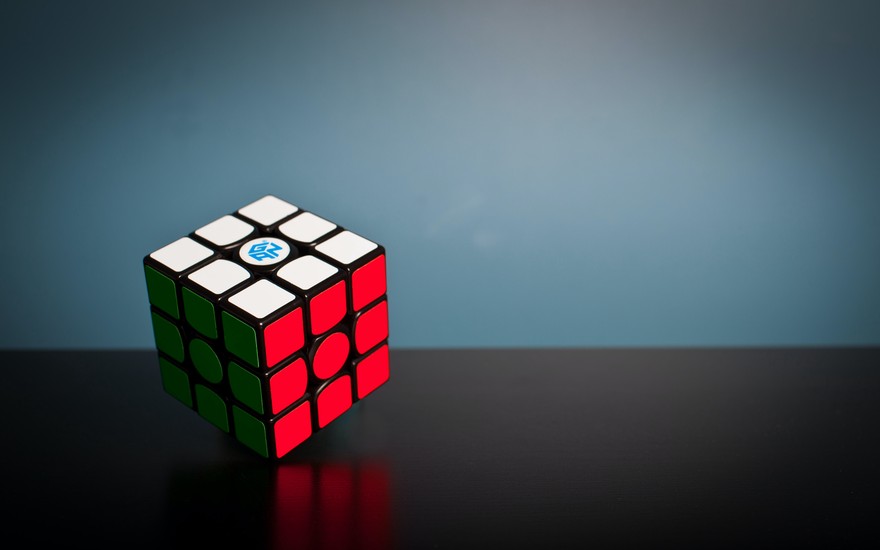
Olav Ahrens Røtne, Unspash.com
Busted Myths of the Rubik's cube
Ever thought that the hardest thing in the known universe is to solve a Rubik's cube? Ever heard a friend of yours telling you that you need a high IQ to solve a Rubik's cube? A few myths are gonna be busted in this blog!!Introduction
I picked up cubing a few years ago. I learnt how to solve it on youtube, by an easy beginner's method. Later, I picked up the cube-solving method of CFOP (Cross-F2L-OLL-PLL) and I found out that it took way less time. I've used it for a few months now, and my record's already 29.73 seconds. If you wanna learn how to solve a Rubik's cube, I recommend this video by J Perm:-
https://www.youtube.com/watch?v=7Ron6MN45LY
Anyway, one day I went to youtube, and I was shocked to see how many people thought that solving a Rubik's cube was hard, or thought that the more you solve a Rubik's cube, the more difficult it gets to solve. So I decided to write this blog.
The myths
1. You need a high IQ to solve a Rubik's cube.
Uhh...no. ANYONE can solve the Rubik's cube. You just have to remember a few sets of moves, called Algorithms, to solve it. A few years of practice, and you'll soon be solving a Rubik's cube in under ten seconds.
2. You must remember the moves you've scrambled to solve a Rubik's cube.
No again. First of all, people have solved large cubes like the 17x17 and 21x21. It takes more than 300 moves to properly scramble them. Anyone who tries to remember the moves will probably go insane. The same applies to a "normal" 3x3. Why waste your time trying to remember moves when you have algorithms beside you? Second of all, if you don't scratch the stickers off or move the pieces around, the 3x3 has 43 QUINTILLION possible positions! That's equal to 43,000,000,000,000,000,000 positions! Even the "pocket cube" 2x2 has over a million positions. I don't think anyone can memorise all that.
3. The more you scramble, the harder the Rubik's cube is to solve.
I don't know who started this myth. All I know is that it was started after the late 1970s, 'cuz that's when the Rubik's cube was invented. Is the myth true? The answer is a resounding no! After a point (between 13 and 20 moves) every position has more or less the same difficulty unless you keep on moving the right side, etc.
4. The bigger the Rubik's cube, the harder it is to solve.
The myth is almost correct, but it has one mistake. A miss is as good as a mile, though. The correct statement is that the bigger the Rubik's cube, the LONGER it takes to solve it. The 4x4 needs only 4 more algorithms than the 3x3 and the 5x5 only needs 3 more algorithms than the 3x3. The 7x7 needs 3 more algorithms than the 5x5. If you understand the mechanics of the 7x7 algorithms, I GUARANTEE you you'll be able to solve a 21x21.
5. You figure out the solution before starting.
Well, no. What speedcubers do is that they quickly assess the position, blitz out an algorithm, assess the position again and then blitz out an algorithm, and do that again and again until they solve it. The whole process takes about 10 seconds. Figuring out the solution before you start is, well, memorising 43 quintillion positions or something like that.
That's all for this blog. If you like it, do consider giving it a heart! Follow me for regular notifications on my blogs. Thanks for reading!
Yours,
Ayushman_C
(Photo courtesy of unsplash.com, met with the etiquette of lichess.org blog)




